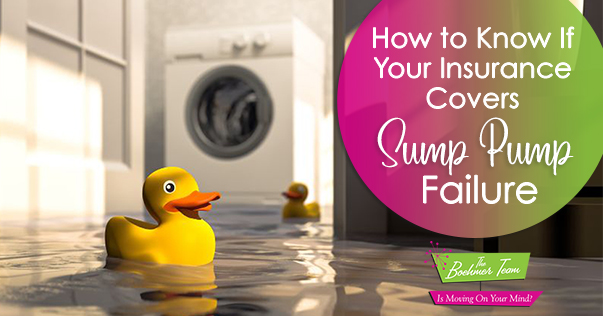Spring weather in the St. Charles
County area of Missouri often brings heavy rain, which can lead to flooding and
potential damage to your home. If you have a sump pump, it can help prevent
water damage, but what happens if your sump pump fails? Does your insurance
policy cover it? Here's what you need to know to make sure your home is
protected.
Does Homeowners Insurance Cover Sump Pump Failure?
The answer to this question depends on your insurance policy. Most standard homeowners insurance policies do not cover sump pump failure. However, some policies may offer an endorsement or rider that provides coverage for sump pump failure. It's important to review your policy carefully and speak with your insurance agent to understand if you have this coverage.
What is Sump Pump Failure Coverage?
Sump pump failure coverage is an add-on to your homeowners insurance policy that covers damage caused by a malfunctioning sump pump. This coverage typically includes repairs to the pump, as well as damage caused by water that enters your home as a result of the failure.
If you live in an area that is
prone to flooding or heavy rain, sump pump failure coverage may be a wise
investment. It can give you peace of mind knowing that you are protected
against potential water damage.
What to Do If Your Sump Pump Fails
If your sump pump fails, it's important to act quickly to prevent water damage to your home. Here's what you should do:
- Turn off the power. Before doing anything else, turn off the power to your sump pump to prevent electrical shock.
- Remove the water. Use a wet/dry vacuum or a pump to remove any standing water from your basement or crawl space.
- Call a professional. Contact a plumber or sump pump repair specialist to inspect and repair your pump.
-
Contact your insurance company. If
you have sump pump failure coverage, contact your insurance company to file a
claim.
What Else to Consider
In addition to sump pump failure coverage, consider doing the following to protect your home from potential water damage:
- Seal cracks and leaks. Make sure your basement or crawl space is properly sealed to prevent water from seeping in.
- Elevate your belongings. Consider elevating your belongings off the ground in case of flooding.
- Install a backup sump pump. A backup sump pump can help prevent water damage in the event that your primary pump fails.
- Clean your gutters on a regular basis.
- Purchase a water sensor for early detection.
- Create an emergency plan. Have a plan in place in case of flooding, including a list of emergency contacts and an evacuation plan.
Remember to beware of flooding
around or in your home as water damage can be costly to clean up. If you have a
sump pump, it's important to understand if your insurance policy covers sump
pump failure. Review your policy carefully and speak with your insurance agent
to understand if you have this coverage. If not, consider adding sump pump
failure coverage to your policy for added protection. And remember to act
quickly if your sump pump fails to prevent water damage and protect your home.
What An Insurance Agent Says About Sump Pump Coverage
Stephen Willet, local St Charles County insurance agent with State Farm says:
“With the rainy season upon us, it is important that you review your homeowners coverage with your insurance agent and keep up with the general maintenance on your home. We always recommend taking a look at the endorsements (optional coverages) that are available on your homeowners policy. My State Farm agency always recommends that our customers carry an endorsement called: Back-Up of Sewer Or Drain. This endorsement provides coverage in the event that the sewer pipe or sump pump in your home backs up and leaks out into the basement. This coverage is extremely important for those that have a finished basements or use their basement for storage. These types of claims can cost thousands of dollars just to clean up the water and sewage, so make sure you take out the maximum amount your company offers.”
Willet also notes that aside from
making sure your coverage is where it needs to be, make sure that you try to
mitigate the chance for water loss to your home. When water that enters
your home from the outside is considered flood and is only covered through a
FEMA flood policy and not your homeowners insurance.
If you have other questions about home ownership, repair or remodel options you are considering to improve your home’s value, or if you’re considering buying or selling real estate, contact The Boehmer Team. We are here to support the homeowners in our St. Charles County communities.


